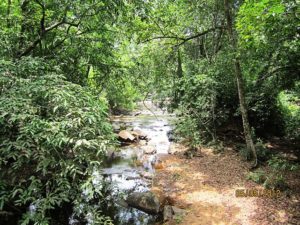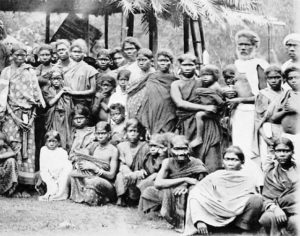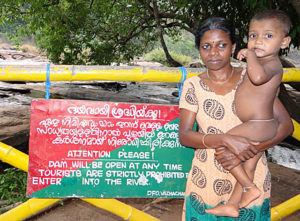A nightmare for the Kadar is returning. Kerala announced last week that the State Electricity Board has been granted permission to resume planning a large power dam on the Chalakudy River. The proposed dam, which has generated extensive news coverage over the years, would harm or destroy a couple Kadar villages and inundate the habitat for many animal and bird species in the Athirappilly Vazhachal forest.

At least three Indian news sources reported on the renewal of the threat: the New Indian Express, Frontline, and Livemint.com. The news sources reported that since the latest clearance for the project from the national government had expired in 2018, it asked the state of Kerala if it needed another extension. The state government replied that it did and it issued a No Objection Certificate to the Kerala State Electricity Board (KSEB). The issuance of the NOC ignited the fervor among environmentalists and concerned Kadar.
The Chairman of the KSEB, N. S. Pillai, sought to reassure those concerned about the renewal of a project that most had thought was sordid history. He said that the issuance of the NOC by the state simply means that the electricity board has permission to continue studying the project, which has been studied extensively since it was first proposed 40 years ago. The NOC simply means that the dam “can be implemented only with the mutual consent of the ruling party and the opposition and all that. That will take another couple of years,” he said.

The news reports included discussions of the effects of the power dam on the Kadar communities as well as the destruction of the forest. The proposed construction will violate the rights of the people, guaranteed under India’s landmark Forest Rights Act of 2006. That act gives the traditional societies the power to reject projects that they feel will adversely affect them.
S. P. Ravi, the leader of the Chalakudi River Protection Forum made that point crystal clear. “The Kadar tribe in Vazhachal forest holds community forest rights over 4,000 hectares of forest land in the area. The project cannot be implemented without their consent,” he said.

Ms. V. K. Geetha, the almost legendary leader of the Vazhachal Kadar community, has been monitoring the situation, despite the fact that she is undergoing treatment for a liver disease. She told one reporter that their community at Vazhachal was the first tribal settlement in India where the people gained their rights over their forest lands.
The government will have to recognize the rights of the tribal assembly when it meets to discuss the situation. She told another reporter that the Kadar have not changed their minds about the project. It will be “stiffly opposed,” she said.